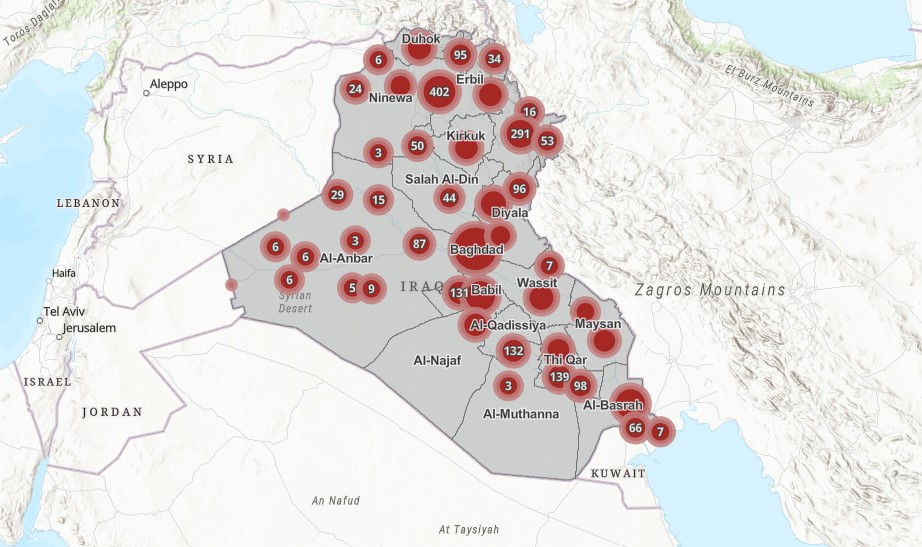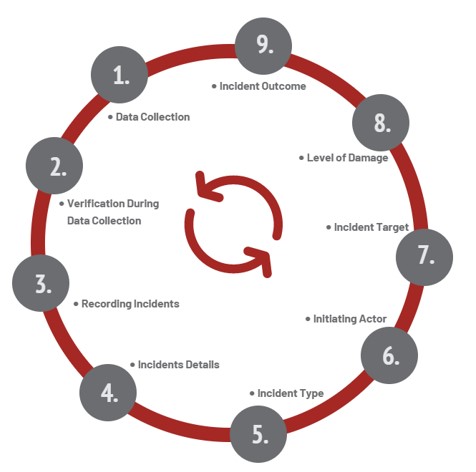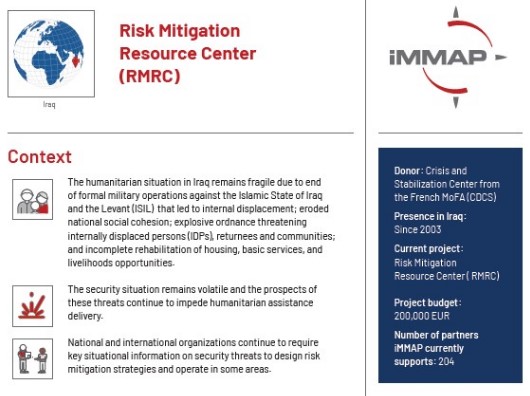The RMRC project was created to inform humanitarian actors and other partners on the security situation in Iraq. Despite the end of formal military operations against the Islamic State of Iraq and the Levant (ISIL) the situation remains problematic, making humanitarian help precarious. This is due to incomplete rehabilitation of housing, essential services, livelihood opportunities, internal displacement, and weakened national social cohesion. Furthermore, Unexploded Ordnance (UXO) and other explosives pose a serious threat to displaced people and returning families as they attempt to rebuild their lives.
The goal of this project was to help partners better understand the country's current situation. This was done by sharing information about accidents, crimes, explosive hazard occurrences, national security operations, natural disasters, and public demonstrations. The information was then made available through monthly interactive products that included the number and types of incidents, patterns over time and location, trends in types of casualties like targets and initiating actors, as well as casualties. The incidents data were collected from reputable news sources, and their accuracy was checked by comparing data from at least three separate reports. When information reliability was threatened by unreliable sources or misreporting, contextual analysis helped boost verification processes.



